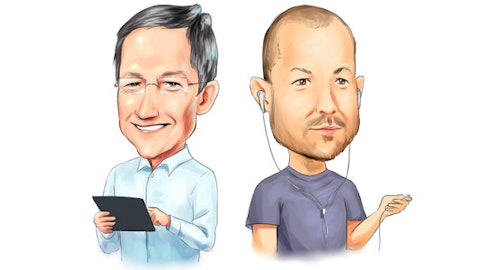Microsoft Corporation (NASDAQ:MSFT) investors have been on quite a ride the past few weeks. CEO Steve Ballmer’s plans to retire within 12 months sent shares up 10% from August’s lows. However, the recent announcement to buy Nokia Corporation (ADR) (NYSE:NOK)‘s handset and services division has seen the market take back all of those gains, while Nokia Corporation (ADR) (NYSE:NOK) shares are up 37%.

And as the Fool’s Jason Moser says in this video, Microsoft Corporation (NASDAQ:MSFT) investors are responding negatively for good reason based on the company’s poor track record with acquisitions, especially in the face of still not having a clear choice for CEO to replace Ballmer. While there is clearly major impact for both of these two companies, the third company in the trio of mobile revolution losers–BlackBerry Ltd (NASDAQ:BBRY) –is still left out in the cold. What does this move mean for BlackBerry Ltd (NASDAQ:BBRY) and its shareholders?
Return to past glory doesn’t look likely
It’s only been a handful of years ago when Nokia Corporation (ADR) (NYSE:NOK) and BlackBerry Ltd (NASDAQ:BBRY)–then called Research in Motion–were at the top of the mobile world. Nokia Corporation (ADR) (NYSE:NOK) was the number one mobile phone maker in the world for most of the 2000s, and the BlackBerry Ltd (NASDAQ:BBRY) was the smartphone, back when that mostly just meant your work email and calendar. IT loved the Fort Knox-like security, and users liked the easy interface, big screen, and real keyboard. But for BlackBerry Ltd (NASDAQ:BBRY), it really came down to its email, and how much better is was at that than anyone else, and BlackBerry Messenger (BBM) for easy on-to-one instant messaging.
But three things happened:
- Everybody else got better at email
- All those apps on the other phones were just more important to more consumers than work email or BBM
- BYOD changed the game
But as to BlackBerry Ltd (NASDAQ:BBRY), it never really embraced-or figured out how to tap-the massive upswell in consumer interest in accessing all of the other things on the web, or the viability of those third party apps. In 2010, the company said it would focus on its corporate customers.
What it didn’t count on, though, was enterprise customer’s concerns about security becoming less of a competitive strength, when executives showed up at the office with an iPhone and told IT to make it work with corporate email. This crack in the IT dam led to the opening of the floodgates, and companies embracing BYOD meant everyone in the company could get connected, and the company didn’t have to buy the hardware.




